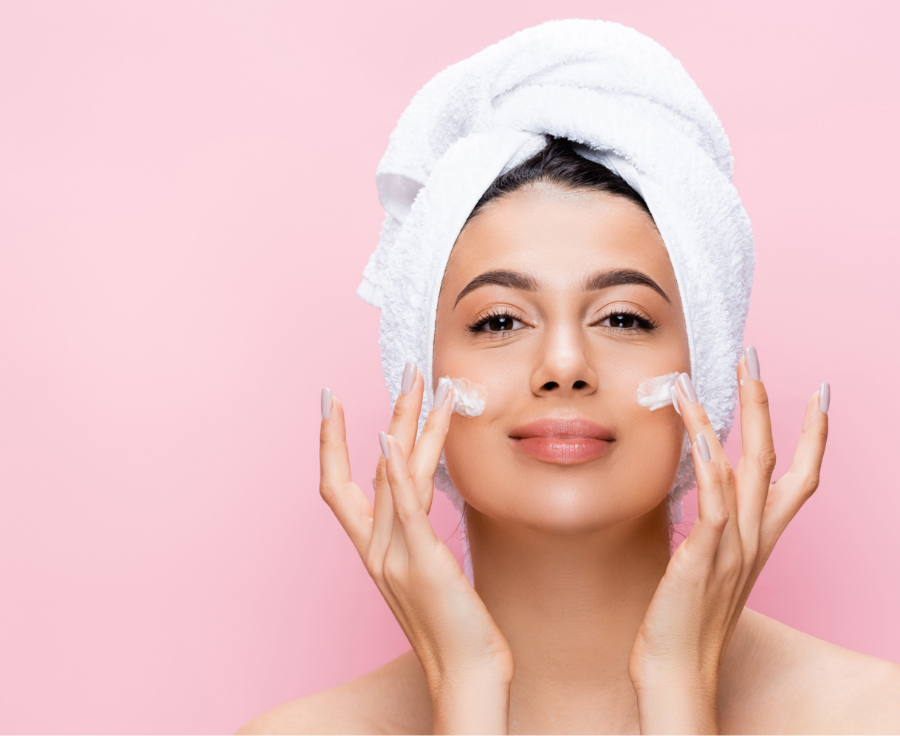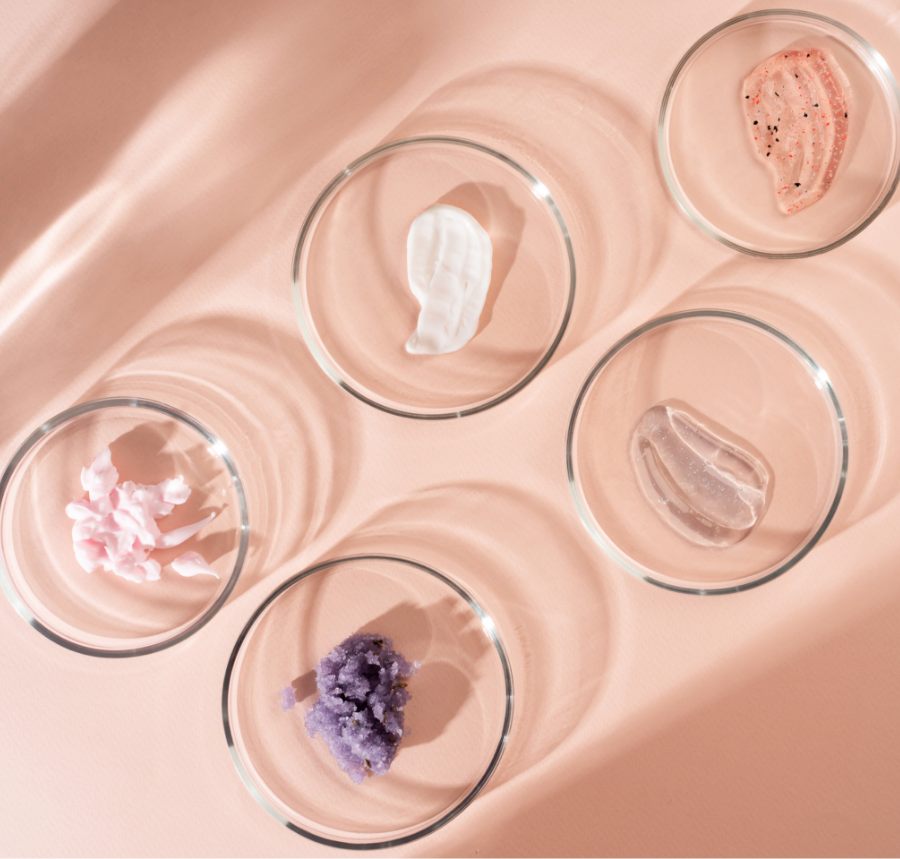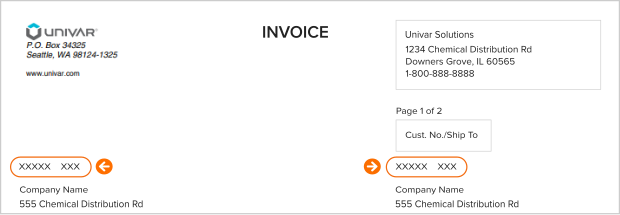We’re here to provide you with more information or help answer any questions you might have. Send us a note and we’ll get back to you as soon as possible.


Plants are the original ingredient for cosmetics and skincare. From herbs and honey cleansers to rosewater and almond oil body wash, these inventions date back to early Egypt. While our products have gotten more sophisticated since then, the concept hasn’t changed much. Mother earth has long supplied us with skin-loving ingredients, and the desire for plant-based skincare only continues to grow. In this article, we’ll discuss the benefits of plant-based skincare, the best natural ingredients, and more.
What Is Plant-Based Skincare?
Plant-based skincare is different from other beauty products due to its use of botanical ingredients. Naturally grown herbs and their extracts, from plant oils to acids, have many strengths that make plant-based skincare products worthy of that coveted place on your bathroom counter.




Benefits of Using Plant-Based Skincare Products
Let’s take a look at why you’ll easily fall in love with this type of skincare.
- Plants are powerful: Many of these formulas are capable of fantastic results, from super hydration to soothing inflammation, even reducing hyperpigmentation, eczema, or rosacea!
- It’s in demand: Consumers have growing concerns about synthetic ingredients/chemical substances on the ingredient label. In 2019, Ecovia Intelligence valued the European natural cosmetics market at €3.9 billion,proving that consumers are buying natural skincare. Adding natural ingredients helps position your products.
- Environmentally friendly: Choosing plant-based over beauty products with animal extracts often reduces your carbon footprint and the damage done to the environment. Brands with plant-based skincare tend to also be more inclined to create ecologically aware packaging and other sustainable practices.
- A new outlook: Plant-based skincare can inspire a change in overall lifestyle, pointing to a plant-based diet to round out the benefits to not only your skin but your entire body.
- A step beyond cruelty-free: If your beauty products are also vegan, rest assured there’s no testing being done on animals, and no animal extracts or by-products are being used.
Is There a Difference Between Vegan & Plant-Based
Skincare Products?
Plant-based skincare products are typically vegan-based, meaning they contain no animal by-products. However, a plant-based label does not mean the formulation strictly excludes all animal by-products. If a product is vegan, it means that nothing on the ingredients list came from animals.
This means vegan skincare products don’t include common beauty product ingredients like beeswax, lanolin (sheep’s wool), carmine (crushed up beetles), squalene (oil from shark’s liver), collagen (often derived from the connective tissue of cows or fish), keratin (ground-up horns, hooves, and hair of various animals), and gelatin (crushed up cow and pig bones and tendons). Unfortunately, there is no legal regulation on a product labeled as vegan. The best way to ensure products are vegan or to get a bonafide label for your products is to look for the Vegan Society Logo.


1. Chamomile
At the first mention of chamomile, you might imagine a hot cup of tea before a peaceful night’s rest but it’s also a very beneficial ingredient for skincare. Chamomile is used in skincare formulas for many of the same reasons you use it to make tea: to detoxify, soothe, and replenish the skin. Sensitive skin benefits greatly from chamomile, naturally addressing redness and irritation.
It can even help in calming a sunburn as an anti-inflammatory, as well as slow skin aging by encouraging cell turnover and protecting against harmful free radicals as an antioxidant. If used in tandem with other calming plants like aloe and lavender, a beauty product can be a fast favorite for even the most sensitive skin types. Chamomile can also be used in products with strong acids to soothe the skin as it exfoliates.
2. Green Tea
Green tea might mainly be used to give you a second wind in the afternoon, but it can also help revive your skin. Similar to chamomile, it is a potent antioxidant and has many calming properties, but it can also treat puffiness due to the presence of caffeine and reduce sebum for those with oilier skin types. It thrives when mixed with other antioxidants, often making other plant-based ingredients more effective. The hydrating power of hyaluronic acid can be bolstered by green tea, and the effects of vitamins C and E are equally propped up by the presence of green tea in skincare formulas.
3. Vitamin C
Vitamin C is a popular skincare ingredient due to its brightening qualities and knack for evening out skin tone. While it can be more troublesome for those with extremely sensitive skin, its ability to protect against environmental pollutants and UV damage makes it very useful to most skin types as an anti aging superhero. It helps our skin naturally produce collagen, resolving the issue of adding any animal by-products to the formula. Those that suffer from hyperpigmentation and melasma may find relief as it lessens dark spots. Like the other antioxidants listed, it thrives best when the formula includes other antioxidants to boost the antioxidant potential.
4. Jojoba Oil
Those with oily skin might shudder at the mention of using an oil in their skincare regimen, but the benefits of jojoba oil really pack a punch, especially for those with acne-prone skin. Jojoba oil isn't technically an oil, it’s a wax ester. While it may look and feel like an oil to the average eye, from a chemistry perspective, it has a different makeup than oils. Wax esters are the main component in natural sebum (oil we produce on our face) so jojoba oil is great at regulating oil production without clogging pores or worsening acne the way other products might. It can also replenish the oil in skin types where dryness is a targeted issue, sealing in moisture. Those that suffer from eczema and rosacea can benefit from its ability to heal the skin barrier. A staple in many cosmetic formulations, it combines well with other ingredients.
5. Tocopherol
It might sound like an ingredient you’ve never heard of, but tocopherol is a form of vitamin E! Those that suffer from cracked, tight skin benefit greatly from products featuring tocopherol, as it helps seal the skin’s barrier and lock in moisture. Skin with active irritation or damage will heal with the help of vitamin E or tocopherol. It even becomes a powerful booster to sunscreen when used in tandem with vitamin C.
6. Retinol
Sometimes elusive, retinol might be that skincare ingredient we all recognize but can’t name why it’s in our routine. A derivative of vitamin A, retinol is nearly a
catch-all when it comes to its benefits. Its strength is in resurfacing skin without being an exfoliant and smoothing skin by replacing dull, dead skin cells with fresh ones. While commonly found in anti-aging products, retinol is also a powerful tool for anyone prone to breakouts. It can unclog and minimize pores, put a stop to future breakouts, and even make other acne-fighting products in your regimen work better.
7. Hyaluronic Acid
Sometimes elusive, retinol might be that skincare ingredient we all recognize but can’t name why it’s in our routine. A derivative of vitamin A, retinol is nearly a catch-all when it comes to its benefits. Its strength is in resurfacing skin without being an exfoliant and smoothing skin by replacing dull, dead skin cells with fresh ones. While commonly found in anti-aging products, retinol is also a powerful tool for anyone prone to breakouts. It can unclog and minimize pores, put a stop to future breakouts, and even make other acne-fighting products in your regimen work better.
8. Azelaic Acid
Azelaic acid is hidden gem for acne-prone folks. Azelaic acid exfoliates deep in the skin while still being gentle, helping to clear out and prevent blackheads. It can also help soothe irritation and help to improve red bumps caused by inflammation, making it perfect for sensitive skin or those who suffer from rosacea. This ingredient is often combined with AHAs, BHAs, and retinol to help its performance by prepping the skin and providing a new layer to absorb azelaic acid more effectively.


Tips for Formulating Plant-Based Skincare Products
When it comes to choosing the right skincare products to create, the amount of advice out there can be overwhelming! Here are a few tips and tricks to remember when formulating your ideal skincare regimen:
- Don’t be afraid to use oils if you’re formulating for oily skin types!
Plant-based oils can have positive effects on all skin types, not just
dehydrated skin. - Create a product with a winning combination of ingredients: For example,
creating a product that provides deep exfoliation AND moisturizing benefits
cuts the likelihood of irritation or dryness. - Always confirm that your skincare line has compatible products: For
instance, don’t formulate retinol with AHAs & BHAs, benzoyl peroxide, or vitamin
C, as these ingredients can either cancel each other out or cause more
irritation rather than address it. - Create a balanced regimen, keeping in mind that time of day makes a
difference: Products applied in the morning could be more quickly absorbed
and provide better protection against the elements, while those in a nighttime
regimen could really focus on overnight repair and replenishment.
Formulate Plant-Based Skincare Products With
Us
Natural extracts can have val that will benefit consumer products with claims such as anti-oxidation, soothing, anti-inflammation, and many more. Ready to start formulating? We’re here to connect you with world-class ingredients through our beauty lens.
Shop Ingredients for Plant-Based Skincare Products
Our ingredients deliver an array of textures, aesthetics, and formulation chassis possibilities. Explore our offering of performanceuable properties-driven and science-based functional ingredients that will help you create your next natural skincare line complete with facial and body cleansers, serums, masks, moisturizers, and more.




Contact Us for Formulation Support
The ingredients listed here are just the beginning! If you are an indie or small cosmetic or skincare brand, formulator, or chemist looking for information about the latest plant-based skincare trends, get in touch to find out how we can cater to your needs when formulating
The tunnel car wash evolution
A star was born in 1940 in Hollywood, California. The first precursor of the modern tunnel car wash business began with an automatic conveyor car wash that used workers to soap and dry the vehicles. A year later, the first hands-free automatic car wash business started using machines to do the work in Seattle. Their popularity exploded throughout the following decades with tunnel washes that used automated mechanical cleaning with nylon bristles and brushes.
Since then, technological advancements such as foam brushes, soft cloth applicators, and modern touchless car washes have made tunnel car wash systems more efficient and less abrasive for vehicle paintwork.
For tunnel car wash equipment performance, it's about striking a balance to ensure the vehicle is cleaned best BEFORE the finishing process. Otherwise, it will magnify and preserve the dirt under these protective layers. Since both applications are doing different things with the surface tension, facility owners need to be sure that the second part of the process begins at the right time to make vehicle surfaces more hydrophobic and shed water rather than further spreading it out.
Resources
References:
Aquabio, Car Wash History: From Simple Beginnings to Modern Day Features: https://aquabio.co/uncategorized/blog/car-wash-history-from-simple-beginnings-to-modern-day-features/
Automatic Vehicle Wash, Tunnel Systems: https://avwequipment.com/equipment-category/tunnel-systems/
Carwash.com, 5 long-lasting benefits of carwashing: https://www.carwash.com/5-long-lasting-benefits-carwashing/
Carwash.com, Going green: Save electricity, water and money: https://www.carwash.com/going-green-save-electricity-water-and-money/
Carwash.com, Lessons in carwash tunnel layout: https://www.carwash.com/lessons-carwash-tunnel-layout/
Detail Pro POS, 20 Car Wash Statistics in 2021 That Will Surprise You: https://www.detailpropos.com/blog/car-wash-statistics/
Focusedcarwash.com, Car Wash Industry Statistics: https://focusedcarwash.com/wp-content/uploads/2017/09/industry-statistics.pdf
How It Works, How does a car wash work?: https://www.howitworksdaily.com/how-does-a-car-wash-work/
JBS Industries, 10 Trends You Should Know About the Car Wash Industry: https://www.jbsindustries.com/blog/10-trends-you-should-know-about-in-the-car-wash-industry/
JBS Industries, Best Car Wash Add-Ons: https://www.jbsindustries.com/blog/car-wash-add-ons/
PSD Codax, Tunnel Car Wash Systems - A Beginner's Guide to Tunnel Car Wash Systems: https://www.psdcodax.com/tunnel-car-wash-systems-a-beginners-guide-to-tunnel-car-wash-systems/
Sunset North Car Wash, Here's What (Tunnel) Car Washes Are Really Doing to Your Car: https://sunsetnorthcarwash.com/2022/11/28/heres-what-tunnel-car-washes-are-really-doing-to-your-car/
Synchrony, 5 Reasons to Visit the Car Wash - and What to Watch Out For: https://www.mysynchrony.com/blog/automotive/5-reasons-to-visit-the-car-washand-what-to-watch-out-for.html
Thompson Sales Company, Wash Your Car Yourself or Take It Somewhere: https://www.thompsonsales.com/wash-your-car-yourself-or-take-it-somewhere/
Tommy's Express, Do clean cars improve gas mileage?: https://tommys-express.com/blog/do-clean-cars-improve-gas-mileage/
Way.com, Tunnel Car Wash - All you need to know: https://www.way.com/blog/tunnel-car-wash-all-you-need-to-know/
Way.com, All you need to know about clean cars and fuel efficiency: https://www.way.com/blog/clean-car-and-fuel-efficiency/
Western Carwash Association, Water Conservation: https://www.wcwa.org/page/WaterConservation






